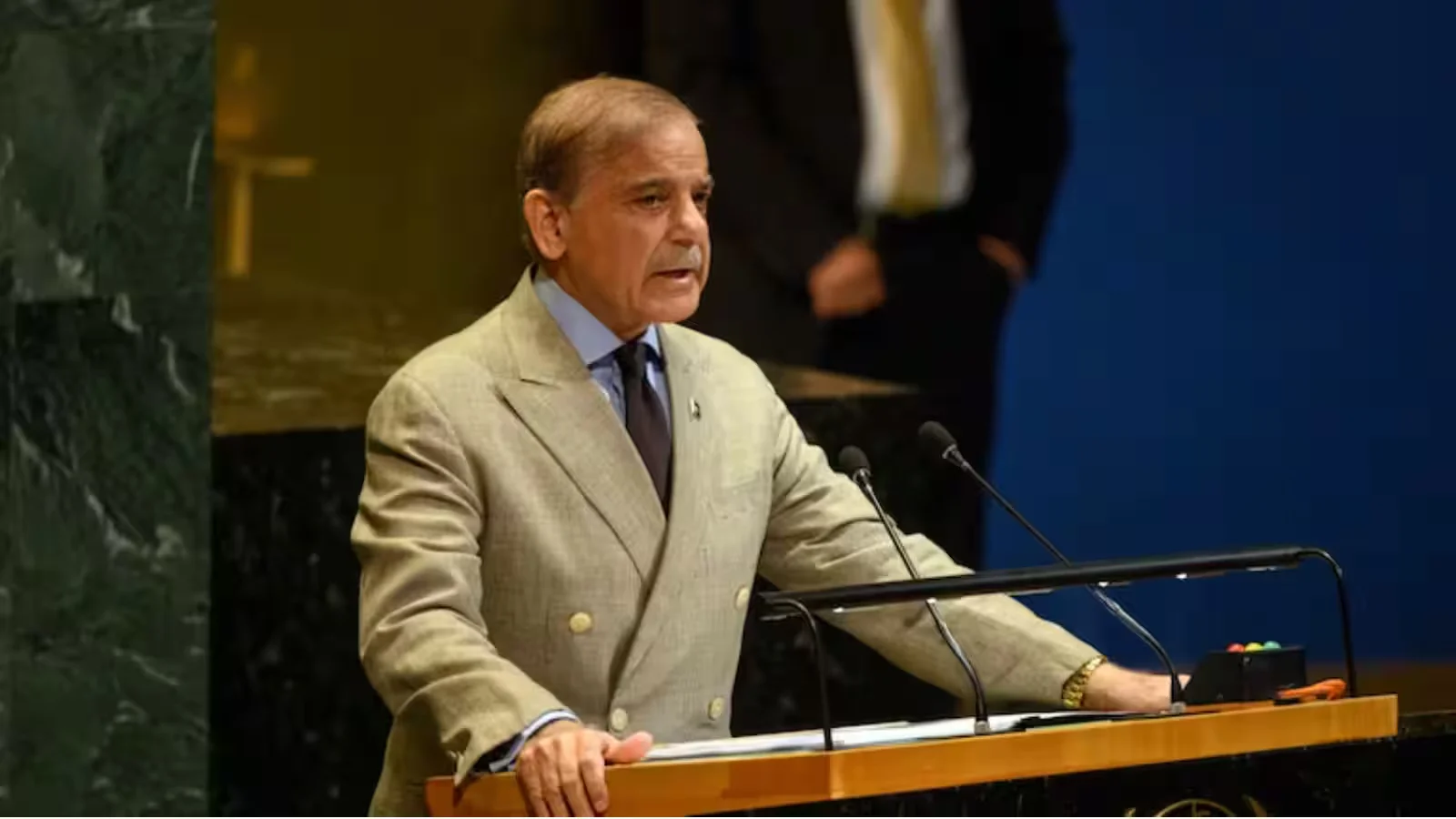Prime Minister Shahbaz Sharif’s address to the United Nations General Assembly (UNGA) on September 26, 2025, was a carefully crafted declaration of Pakistan’s renewed confidence and strategic repositioning on the global stage. The speech came on the heels of a series of significant geopolitical developments that have bolstered Pakistan’s international standing. The successful and credible defense against Indian aggression in May 2025, which saw the downing of seven Indian fighter jets, demonstrated a robust conventional deterrence capability. This military success was followed by the landmark Pakistan-Saudi Arabia defense treaty, a pact that has solidified a critical strategic alliance in the Middle East. Furthermore, a flurry of high-level meetings between the Pakistani leadership and global figures, including Chinese President Xi Jinping and Turkish President Recep Tayyip Erdoğan, have signaled a concerted effort by Islamabad to re-engage with the world from a position of strength.
Against this backdrop, Sharif’s address was a significant act of diplomatic signaling, balancing assertive rhetoric on core national interests with a call for multilateralism and peaceful conflict resolution.
The India-Pakistan Conflict: A Narrative of “Peace Through Strength”
The most potent segment of Sharif’s address was his detailed recounting of the May 2025 conflict with India. His narrative was one of a nation forced to act in self-defense against unprovoked aggression. By invoking Article 51 of the UN Charter, he framed Pakistan’s response not as an act of war, but as a legitimate exercise of its right to self-defense. The Prime Minister’s statement that Pakistan turned to scrap and dust seven Indian jets was a stark reminder of the costs of military misadventure in the region. This assertive posture was further underscored by his critique of India’s refusal to allow an independent international investigation into the Pahalgam attack, which India had cited as the casus belli for its military actions.
This narrative of peace through strength is a clear signal to the international community, and to India in particular, that Pakistan will not be cowed by military threats and that any future aggression will be met with a decisive response. The call for a “comprehensive and result-oriented dialogue” was, therefore, not a plea from a position of weakness, but an invitation to a negotiation between equals.
Kashmir and Water Rights: Internationalizing Core Disputes
On the issue of Kashmir, Sharif reiterated Pakistan’s unwavering support for the Kashmiri people’s right to self-determination, as enshrined in UN Security Council resolutions. His call for a plebiscite under UN auspices is a long-standing Pakistani position, but its articulation at the UNGA, following a successful military standoff with India, carries renewed weight. This position was further amplified by separate statements from other world leaders during the UNGA session, such as Turkish President Erdoğan’s call for a just resolution of the Kashmir dispute. Such interventions serve to internationalize the issue and highlight the growing support for Pakistan’s position among key Muslim-majority nations.
Sharif also raised the critical issue of water rights, accusing India of violating the Indus Waters Treaty. His assertion that any attempt to unilaterally suspend the treaty would be tantamount to an act of war was a strong warning to New Delhi. The Indus Waters Treaty has been a cornerstone of regional stability for decades, and its potential unraveling would have catastrophic consequences for both countries. By highlighting this issue at the UNGA, Sharif has put the international community on notice about the potential for a new and dangerous flashpoint in South Asia.
A Principled Stand on Palestine and Global Terrorism
Beyond the immediate concerns of South Asia, Sharif’s speech also articulated a principled stand on key global issues. His condemnation of Israel’s actions in Gaza as unspeakable terror and his emotional invocation of the tragic death of Hind Rajab were powerful appeals to the conscience of the international community. The call for a sovereign Palestinian state with pre-1967 borders and Al-Quds as its capital is a position that resonates deeply across the Muslim world and positions Pakistan as a leading voice for Palestinian rights.
On the issue of terrorism, Sharif took a firm and unequivocal stance, condemning it in all its forms. He reminded the world of Pakistan’s immense sacrifices in the global war on terror, citing the loss of tens of thousands of lives and the devastating economic impact. His powerful speech was a poignant reminder of the shared humanity that is threatened by terrorism and the need for a united global front against it.
Conclusion: A New Era for Pakistani Diplomacy?
Shahbaz Sharif’s UNGA address was an important moment for Pakistani diplomacy. It was a speech that was at once assertive and conciliatory, principled and pragmatic. It laid out a clear vision for Pakistan’s role in the world, a nation that is confident in its ability to defend its sovereignty, committed to the principles of international law, and ready to play a constructive role in resolving global conflicts. The speech has set a new tone for Pakistan’s engagement with the world, one that is based on mutual respect and a clear-eyed understanding of its national interests. The challenge for Pakistan now will be to translate the powerful rhetoric of this speech into concrete diplomatic achievements. If it can do so, then Sharif’s UNGA address may well be remembered as the moment that heralded a new and more confident era for Pakistan on the world stage.
The views expressed in this article are the author’s own. They do not necessarily reflect the editorial policy of the South Asia Times.
Also See: Pakistan’s Defence Modernization: Between Sovereignty and Strategic Synergy






![Ukrainian and Russian flags with soldier silhouettes representing ongoing conflict. [Image via Atlantic Council].](https://southasiatimes.org/wp-content/uploads/2026/02/2022-02-09T000000Z_1319661209_MT1NURPHO000HXCNME_RTRMADP_3_UKRAINE-CONFLICT-STOCK-PICTURES-scaled-e1661353077377.jpg)
